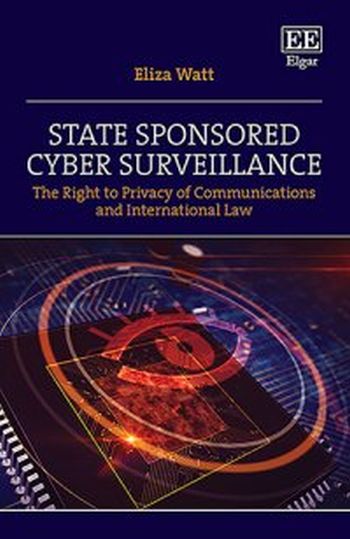
This insightful book focuses on the application of mass surveillance, its impact upon existing international human rights and the challenges posed by mass surveillance. Through the judicious use of case studies State Sponsored Cyber Surveillance argues for the need to balance security requirements with the protection of fundamental rights.
The author makes a case for the adoption of a multilateral cyber surveillance treaty, together with a review of whether online privacy has yet become a rule of customary international law. Chapters provide a comprehensive and up-to-date account of the right to privacy of communications under the International Covenant on Civil and Political Rights, the European Convention on Human Rights and the American Convention on Human Rights, as well as guiding the reader through the taxonomy of cyber intelligence operations. Eliza Watt also offers insightful studies of the differences between cyber espionage, cyber electoral interference and mass cyber surveillance.
This innovative, thought-provoking book will greatly assist legal practitioners, policymakers and government advisers within the fields of international law and privacy. Students and academics will also be provided with a focussed account and in-depth analysis of recent developments in the law around cyber.